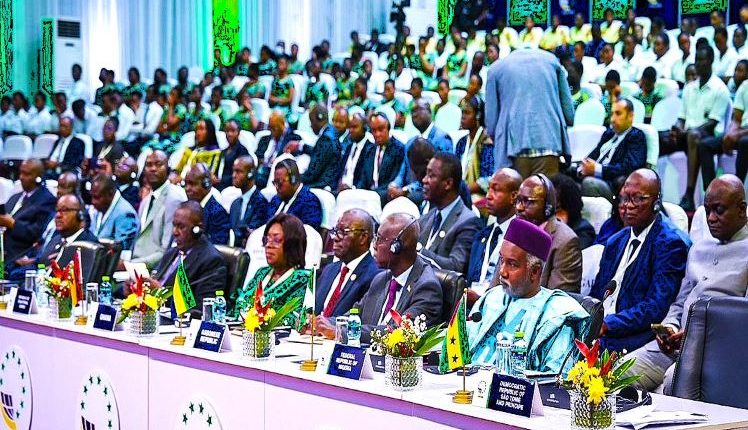Nigeria has urged for concrete measures to harmonise procedures supported by legally binding agreements to address the difficulties confronting the Gulf of Guinea region.
Nigeria’s Foreign Affairs Minister, Ambassador Yusuf Tuggar, made the request during the Gulf of Guinea Commission’s Assembly of Heads of State and Government in Accra, Ghana.
Ambassador Tuggar noted that pursuing several processes with limited resources impedes the Commission’s goals and objectives.
As a result, he underlined the importance of the Assembly adopting plans that will aid in the region’s defense and security.

“The internalization of the Yaoundé code of conduct with our national legislations, therefore, presents the region with an enforceable, legally binding agreement, for our waterways and seas. There is also a need for concrete measurable timelines for the exploration of the rich natural resources of our deep waters.
“As such, the Commission requires a more constructive approach to building relationships with international, regional and subregional partners towards enhancing its capabilities to adopt technologies and knowhow for the exploration and subsequent exploitation of the natural resources in the blue economy of the Gulf of Guinea,” Ambassador Tuggar said.
The Foreign Affairs Minister also emphasised the need to establish a specialized court to try maritime piracy cases in the region.
The Ambassador, while charging the Gulf of Guinea Commission to safeguard the environment and protect the region from environmental degradation, guard against the dumping of radioactive material and nuclear waste, reiterated Nigeria’s commitment to the goals, objectives and vision for the establishment of the Commission, and support for the work of the Secretariat.
“The importance and significance of Gulf of Guinea to Africa cannot be over-emphasised. To this end, Nigeria takes this opportunity to reaffirm its commitment to the work and mandate of the Gulf of Guinea Commission.
“As a demonstration to our commitment to the Gulf of Guinea Commission, Nigeria’s National Assembly passed the Suppression of Piracy Other Maritime Offences Act in 2019 to prevent and suppress Piracy, Armed Robbery and any other unlawful acts against any vessels unlawfully operating in the Gulf Region. Nigeria continues to deploy significant resources towards tackling piracy in the Gulf of Guinea. This has resulted in a significant containment of threats,” he stated.
The 6th Ordinary Session of the Assembly of Head of States and Government of the Gulf of Guinea is with the theme “Building a Secure and Prosperous Gulf of Guinea Region for Sustainable Development”.





